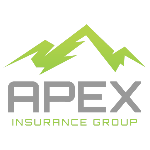The Art of Cross-Examination in Sales: Asking the Right Questions for Closing Deals
The Assistant2023-12-19T10:26:18-06:00In the fast-paced world of insurance sales, mastering the art of cross-examination can be the key to unlocking new opportunities and closing deals. Insurance agents who excel in asking probing questions can uncover the unique needs of their prospects, paving the way for tailored solutions and successful closures. In this blog post, we will explore the intricacies of the cross-examination process and discuss how the skill of asking the right questions can elevate your sales game.
Understanding the Power of Questions
Questions are the foundation of effective communication, and in the domain of insurance sales, they serve as the gateway to understanding a prospect’s specific requirements. As an insurance agent, your ability to ask the right questions can mean the difference between a stalled conversation and a successful deal.
- Preparation is Key
Before engaging in any sales conversation, it’s crucial to conduct thorough research on your prospect. Understanding their business, industry challenges, and current insurance coverage sets the stage for insightful questioning. This preparation not only demonstrates your professionalism but also allows you to tailor your questions to the prospect’s unique circumstances.
- Building Rapport through Open-ended Questions
The first step in the art of cross-examination is to establish rapport with your prospect. Open-ended questions are a powerful tool for this purpose, encouraging the prospect to share valuable information about their needs, concerns, and priorities. For instance, instead of asking, “Do you have any insurance coverage?” try, “Can you tell me about your current insurance arrangements and any challenges you may be facing?”
- Uncovering Pain Points with Strategic Probing
Cross-examination is about digging deeper, and strategic probing questions help uncover pain points that may not be immediately apparent. These questions should be designed to reveal the prospect’s challenges, risks, and areas where their current coverage may fall short. For example, “In the event of a major business interruption, how confident are you in your current insurance’s ability to mitigate financial losses?”
- The Power of Why
Asking “why” can be a game-changer in cross-examination. When a prospect mentions a concern or a desired outcome, follow up with a “why” question to explore the underlying motivations. This not only provides deeper insights but also demonstrates your genuine interest in understanding their perspective. For instance, “You mentioned that reducing premium costs is a priority. Why is that particularly important for your business right now?”
- Listening as a Form of Cross-Examination
Effective cross-examination is not just about asking questions; it’s about active listening. Pay close attention to your prospect’s responses, and use their answers to guide your subsequent questions. This not only shows that you value their input but also allows you to tailor your pitch to directly address their concerns.
Closing the Deal
Once you’ve completed the cross-examination process and gathered valuable information, it’s time to leverage those insights to close the deal.
- Tailoring Solutions to Uncovered Needs
Armed with a wealth of information from your cross-examination, tailor your insurance solutions to directly address the prospect’s needs and concerns. Whether it’s customizing coverage limits, adjusting deductibles, or introducing additional policies, align your proposal with the insights gained during the questioning phase.
- Reinforcing Value Propositions
During the closing stage, revisit the key pain points and challenges identified through cross-examination. Clearly articulate how your insurance solutions address these issues, emphasizing the value your offerings bring to the prospect’s specific situation. This reinforces the prospect’s understanding of how your products or services can make a meaningful impact on their business.
- Overcoming Objections with Precision
Effective cross-examination equips you with the knowledge to anticipate and overcome objections. Address any lingering concerns or hesitations the prospect may have by referencing the information gathered earlier. This not only demonstrates your commitment to their unique needs but also showcases your expertise in providing tailored solutions.
Conclusion
In the ever-changing landscape of insurance sales, excelling in the technique of cross-examination through strategic questioning is a proficiency that distinguishes top-performing agents. Through adept questioning, revealing concealed needs, and customizing solutions accordingly, insurance agents can adeptly maneuver through the intricacies of the sales process. As you refine your cross-examination skills, keep in mind that each conversation is a chance to cultivate enduring relationships and secure mutually beneficial deals for both you and your clients.




